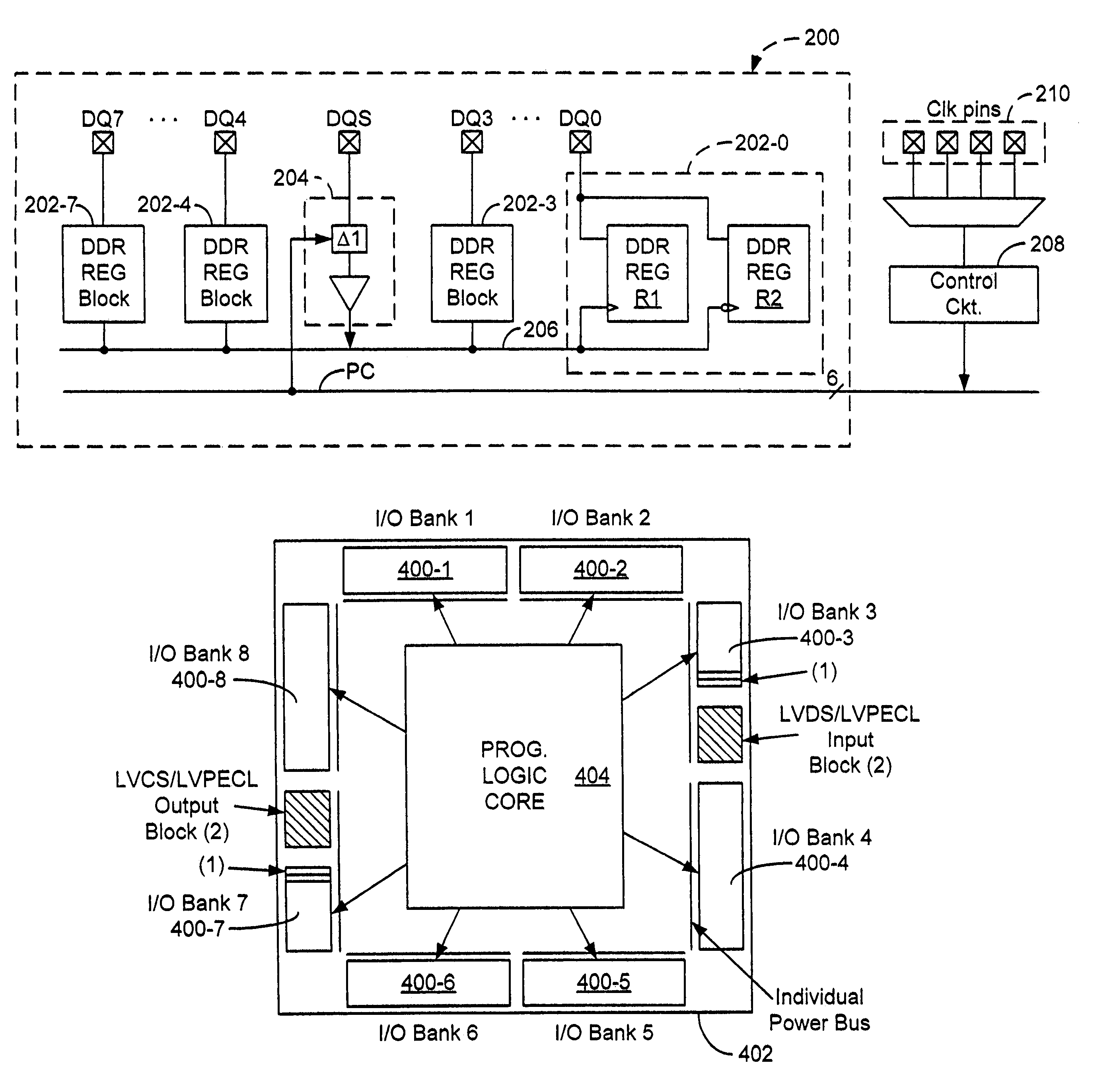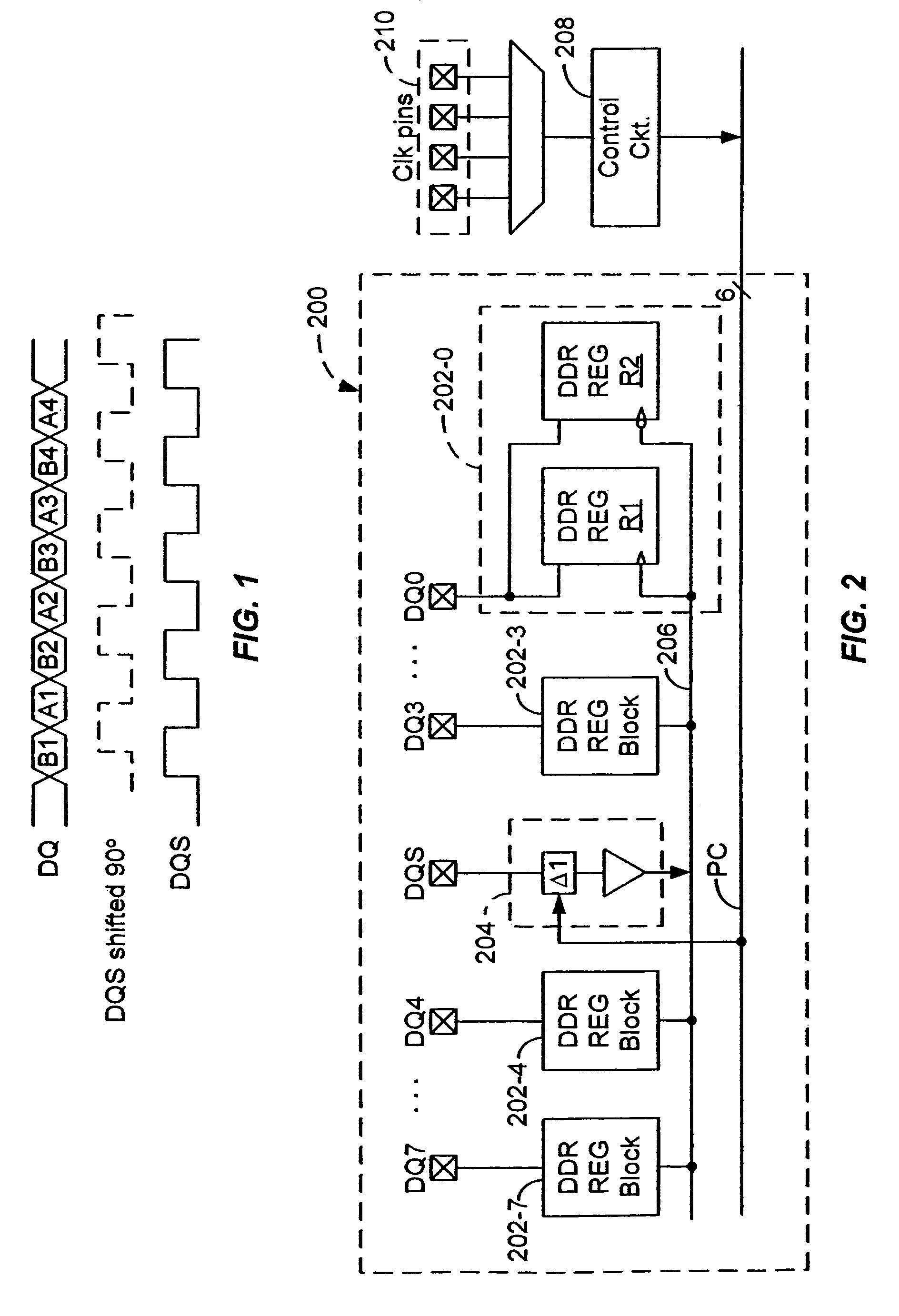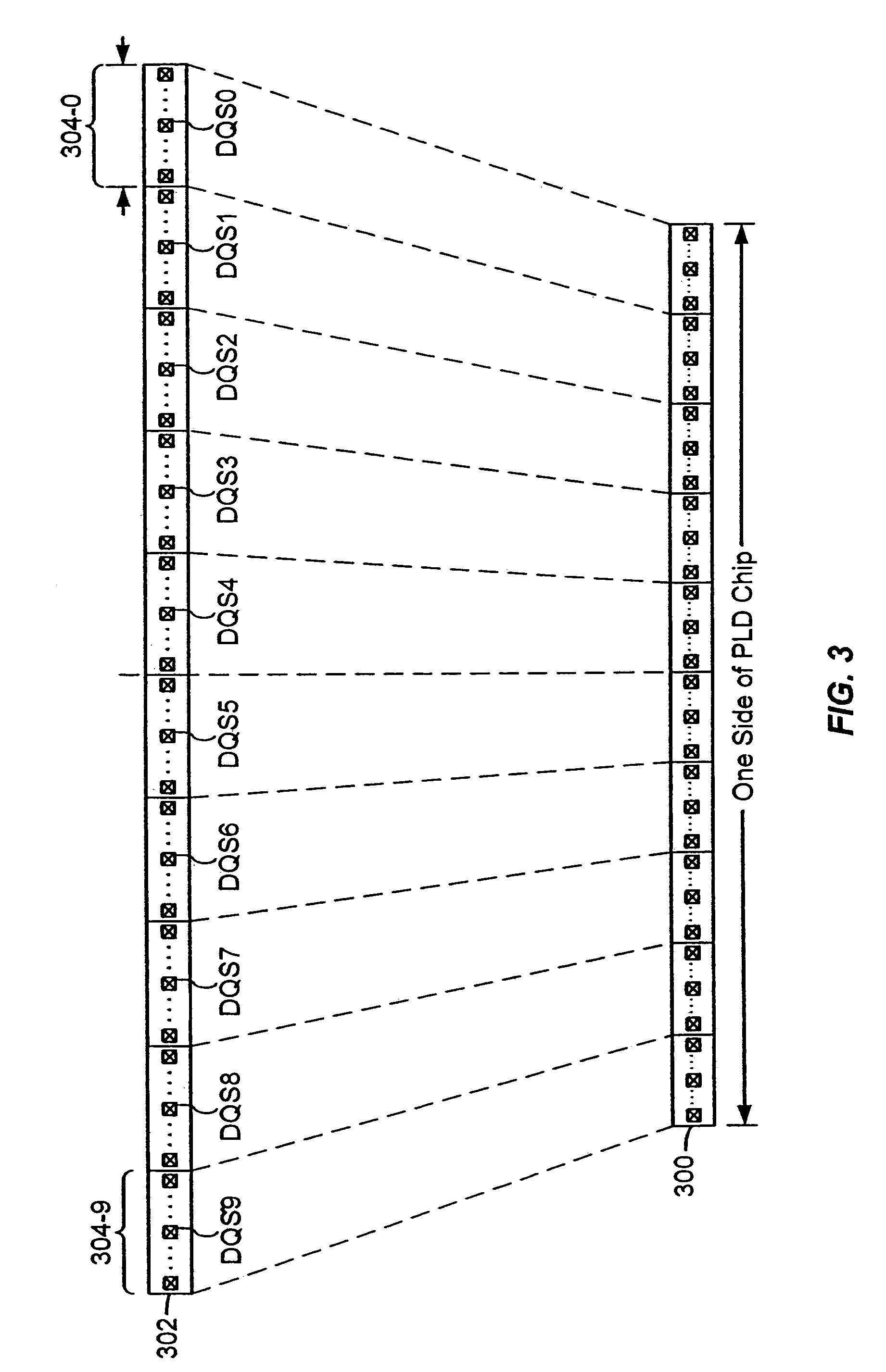Multiple data rate interface architecture
a multi-data rate, interface technology, applied in logic circuit coupling/interface arrangement, pulse technique, instruments, etc., can solve the problems of exacerbated constraints, high process voltage and temperature (pvt), and high variability of typical phase shift techniques, so as to facilitate efficient pin migration, facilitate the implementation of larger plds, and be easily scaled in size
- Summary
- Abstract
- Description
- Claims
- Application Information
AI Technical Summary
Benefits of technology
Problems solved by technology
Method used
Image
Examples
Embodiment Construction
[0018]To minimize skew, accommodate a wide frequency range of operation, and facilitate rapid pin migration to larger PLDs, the present invention provides a modular multiple-data-rate I / O architecture that can be readily replicated and scaled. For illustrative purposes, the invention is described in the context of a double-data rate (DDR) system. It is to be understood, however, that the principles of this invention can be applied to systems operating at quad-data rate or higher. Referring to FIG. 2, there is shown a block diagram of an I / O module 200 for a PLD configured for DDR operation according to one embodiment of the present invention. In this embodiment, DDR interface module 200 includes a number of, in this example eight, data I / O cells each having a data I / O pin DQ and a DDR register block 202 made up of a pair of data registers R1 and R2. Module 200 also includes a strobe input cell which is preferably located at a central location vis à vis other I / O cells, and includes ...
PUM
 Login to View More
Login to View More Abstract
Description
Claims
Application Information
 Login to View More
Login to View More - R&D
- Intellectual Property
- Life Sciences
- Materials
- Tech Scout
- Unparalleled Data Quality
- Higher Quality Content
- 60% Fewer Hallucinations
Browse by: Latest US Patents, China's latest patents, Technical Efficacy Thesaurus, Application Domain, Technology Topic, Popular Technical Reports.
© 2025 PatSnap. All rights reserved.Legal|Privacy policy|Modern Slavery Act Transparency Statement|Sitemap|About US| Contact US: help@patsnap.com



